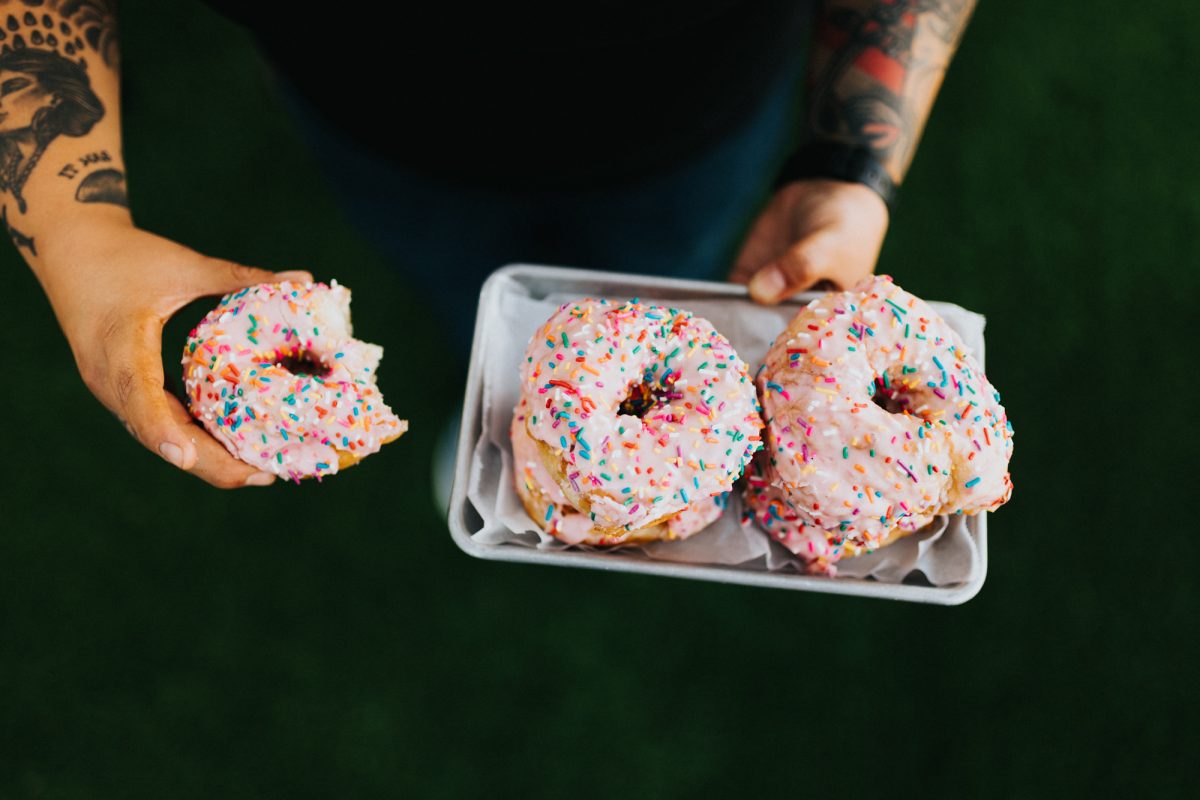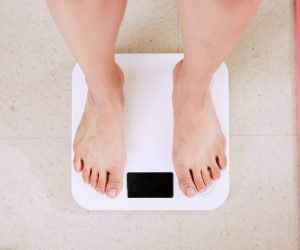
Stress Hormones: How Diet Affects Hormonal Balance
Dr. Josh Axe, DC, DMN, CNS – Stress is a major issue literally everyone deals with in way or another, and chronic stress is a problem like never before. That’s why it’s so vital to keep your stress hormones in check.
In a podcast episode with Dr. Anna Cabeca, DO, FACOG, I talked with the board-certified gynecologist and obstetrician, hormonal health expert, and best-selling author of books like “The Hormone Fix” and “Keto Green 16” about some of the major stress hormones and how to eat to beat stress.
What Are Stress Hormones?
When we talk about stress hormones, cortisol typical tops the list, and for good reason. It is called the primary stress hormone, after all.
It’s released when we’re under pressure and triggers the fight or flight survival response.
However, cortisol isn’t the only stress hormone, and truthfully, it may not even be the most important of the stress hormones.
That title could just as easily be reserved for insulin. While most people think of diabetes when discussing this hormone, insulin is related to weight gain, PCOS, low testosterone and, of course, blood sugar levels.
In addition, insulin can affect almost every hormone in the body and certainly has a major impact on stress.
“I always say oxytocin is the master hormone,” Dr. Cabeca says. “If you would consider oxytocin the dean of the university, the professors would be insulin and cortisol, and the student body is the rest of the hormones.”
Other stress hormones besides cortisol and insulin include:
- Adrenaline
- Norepinephrine
- Catecholamines
- Vasopressin
- Corticotropin-releasing hormone
- ACTH
- Gonadotropins
- Thyroid Hormones
- Growth Hormone
- Prolactin
How Diet Affects Hormones
What are the biggest things in terms of diet that are really throwing our hormones out of whack today?
“Definitely it’s sugar,” Dr. Cabeca says. “The brain fog, the memory loss, the … increased risk of dementia — all of that coming into a diet that is too high in sugar and creates insulin resistance so we have a harder time using the glucose that we do have.
“The second thing is actually a practice that’s so hormonally disruptive to women and men, and that is snacking throughout the day. Three meals, three snacks — how did that ever come about?”
The snacking habit can wreak havoc on stress because of the way it affects stress hormones. When we snack, it bumps up insulin, which affects the rest of our hormones, and insulin goes up every time we eat. Thus, the more we snack, the more insulin goes up, helping create insulin resistance.
It also creates a roller coaster for hormonal balance, with large fluctuations affecting everything from our moods to gut health and, yes, stress levels.
How to Eat to Beat Stress
What’s the No. 1 thing you can do to get your hormones in balance and keep stress hormones in check?
“I consider breaking up with sugar one of the most valuable gifts you can give yourself,” Dr. Cabeca says.
Here are some other tips she shares:
Practice Intermittent Fasting
There are many benefits of intermittent fasting, and that includes helping manage stress. Going without food for an extended period of time puts the body in ketosis, switching from using glucose to fuel the brain to ketones as brain fuel.
“Always try to keep at least four hours between meals because you need to get your body sensitized to glucose again and to insulin again and shift to using ketones for fuel,” says Dr. Cabeca.
Follow a Green Keto Diet
“There are many ways to do keto. What’s going to create the best metabolic stability, the best hormone balance? Through my own experience with keto that’s where I discovered how important the green aspect is,” Dr. Cabeca says.
Monitor Urine pH Levels
According to Dr. Cabeca, urine pH levels can show how well we’re managing stress.
“It’s as important as our blood pressure, as important as our heart rate, as important as our weight,” she says. “… The more cortisol we secrete, the more acidic our urine pH is. Even vegan, plant-based eaters can be acidic if they’re stressed, if they’re worried, if they are inflamed, if they have too much carbs in their system.”
Pinpoint Outside Stressors
“It’s not just about what you eat. Maybe it’s about who you’re eating with — are they stressing you out? If that’s the case, it doesn’t matter how amazing your food is,” Dr. Cabeca shares.
Avoid Toxins
“We are what we eat ate,” Dr. Cabeca says. “It’s important to consider not just what they ate, but how they lived and how they died. That comes into play with additional stress hormones getting into our system and how that can really affect our physiology.”
You want to avoid foods sprayed with herbicides or pesticides, along with animals that have eaten foods that contain harmful toxins. Why? They can act as endocrine disruptors that throw hormones out of balance.
Don’t Eat Too Late
“We know if we eat after 7 p.m., our body’s going to increase more of that insulin hormone as much as 30% to 70% compared to the same meal we ate before 7 p.m. That’s huge,” Dr. Cabeca says.
Stress-Busting Foods/Supplements
Here are some of the top foods Dr. Cabeca recommends to manage stress hormones:
- Dark leafy greens/cruciferous vegetables — kale, beet greens, Swiss chard, collard greens
- Healthy fats — olive oil, avocado, MCT oil, coconut oil, wild-caught salmon, grass-fed beef, bison
- Omega-3 fish oil — make sure it’s high-quality and contains EPA, DHA and DHEA
- Adaptogens — maca root, ashwagandha, rhodiola, ginseng, astragalus, turmeric
- Melatonin
- Magnesium
- Vitamin D
What does a typical day of eating look like for Dr. Cabeca? She shared an example of her daily eating routine:
- Wakeup time: Hydrate with alkaline water and a shot of maca. “The body has been detoxing and rejuvenating all night. We want to hydrate well in the morning and support our body’s natural detoxification process.”
- Breakfast: Fried egg served over spinach and arugula with a side of tomatoes and some organ meat on the side. “Our plates are 75% green or combined with additional alkalinizers, sprinkled with olive oil, lemon juice, some herbs and spices.”
- Lunch: Usually skip lunch as part of intermittent fasting. “We work to get a 16-hour fast.”
- Dinner: Salmon cakes, poaching salmon, add additional alkalinizers right there into protein and fats. Add in great mayo, eggs or additional fats and protein, instead of a binder such as bread crumbs or flour, use a little chickpea flour. It adds a nice spice and stays low-carb. You could use a nut flour just as easily. Add some celery, cilantro, onions, dill, Himalayan sea salt. Serve with aioli side and some asparagus.
- After dinner: Cup of tea before bed.
Final Thoughts
Dr. Cabeca signed off with a vital message to keep stress hormones in balance:
“If our body’s not having to constantly produce insulin and cortisol to fight inflammation often caused by glucose as well as stress, if our body’s not fighting those hormones and we have more of our own natural progesterone and DHEA, these are hormones that build us back up, that give us healthy breasts, a healthy mind and strong bones as well as an empowered immune system.
“When our body’s not constantly putting out fires with insulin and cortisol, then we can really build our body back up and create a really strong, resilient body.
“It stars with an early morning ritual based on appreciation, gratitude and meditation, and then an evening ritual that sets us up to get a fabulous night’s sleep.”
To read the original article click here.
For more articles from Dr. Axe click here.






